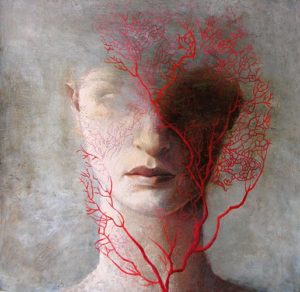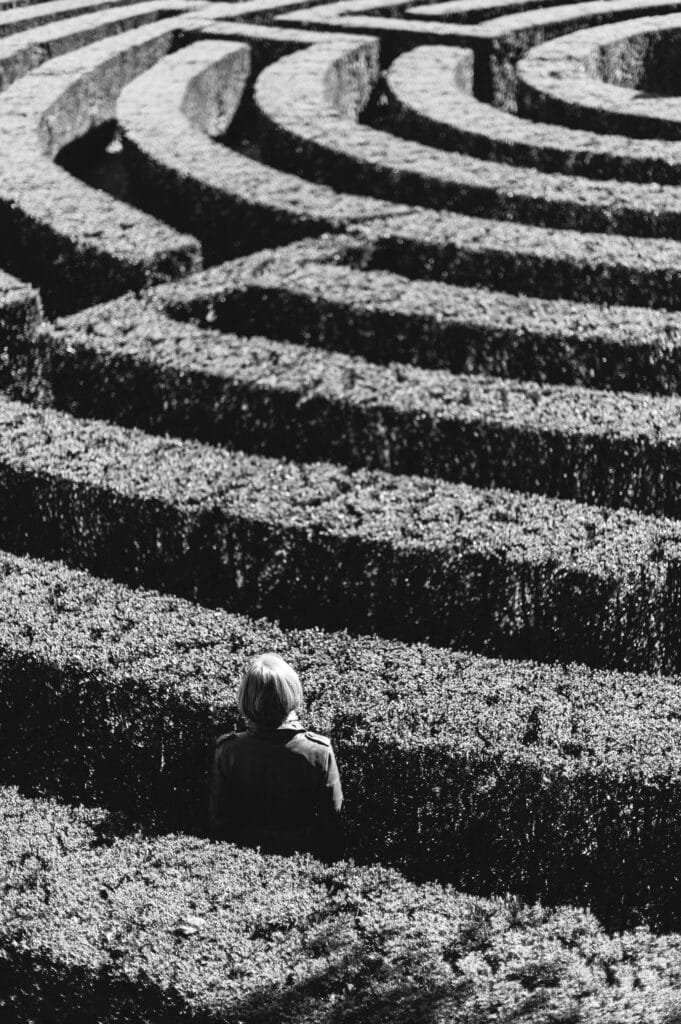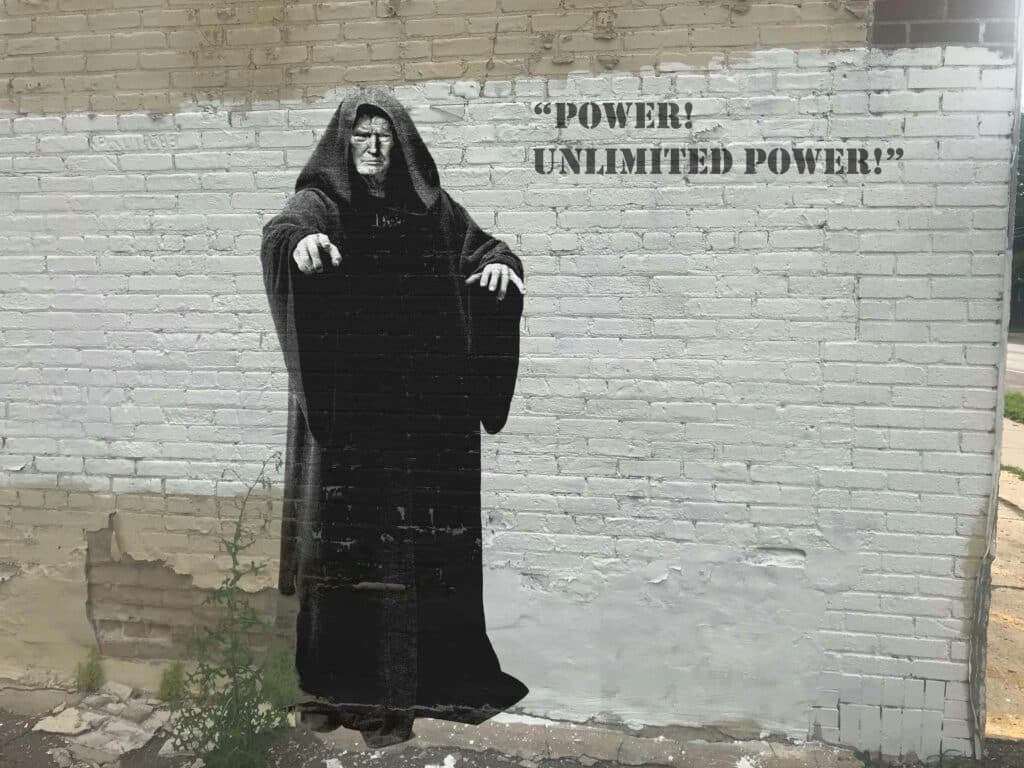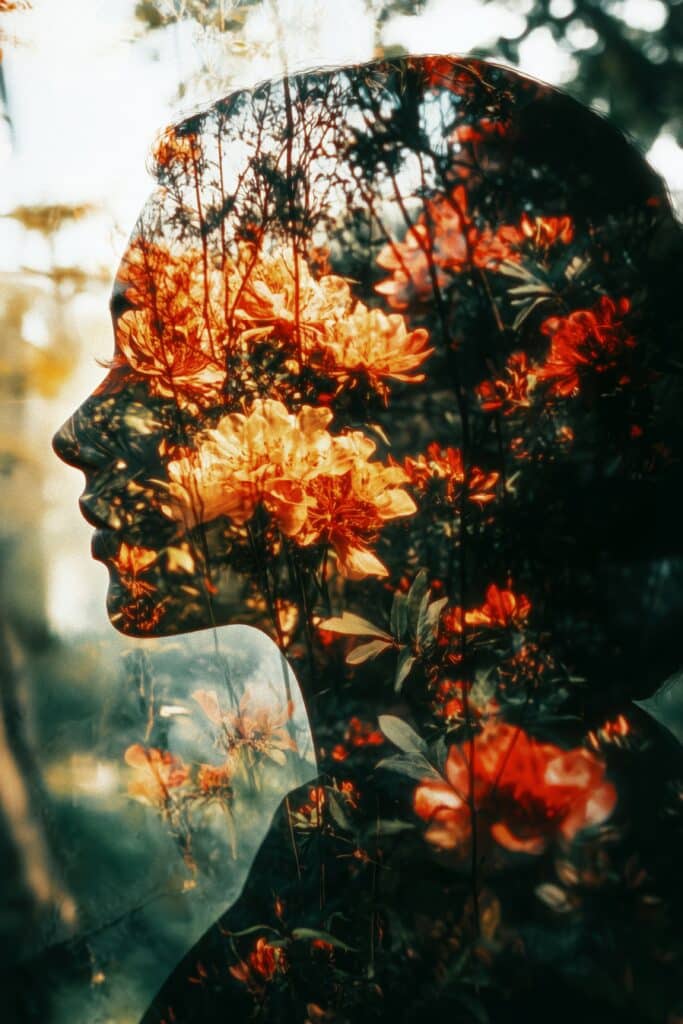White Women, Racism and the Mother Wound

“Mainstream communication does not want women, particularly white women, to respond to racism. It wants racism to be accepted as an immutable given in the fabric of your existence, like evening time or the common cold.” ~Audre Lorde
Confronting the beliefs we’ve inherited from our mothers is an invaluable part of the process of becoming a conscious woman. In doing so, we gain an enormous amount of information about how we got to where we are and what shifts we need to make to become the women we are meant to be.
So far in 2016 in America, 136 men have been killed by white police officers, including both Philando Castile and Alton Sterling who were both killed within a 24-hour period. In 2015, 258 black men were shot by police. Seeing this violence is causing outrage and important dialogue about what to do to stop this, including among those of us who benefit from the white-privileged systems in America.
Inherited Racism & White Privilege
As part of healing the Mother Wound, it’s important for those of us who are white women to deeply look at what racism and white privilege we have inherited from our mothers. This is not to blame our mothers for their mistakes, but to fully acknowledge them so that we don’t repeat them.
- What racist beliefs and patterns did we absorb as children?
- How did we see our white mothers interact with black women?
- In what ways are we replaying those patterns and beliefs now in our everyday lives?
Patriarchy defines power as a dichotomy of the powerful and the powerless.
We live in a white-male-dominated society. While our institutions would like us to believe that patriarchal, white male power is inevitable and eternal, we can now realize that it is simply an idea. It is an idea that has lived out it’s time and is now being expressed in its most insane, dysfunctional forms.
In her book, “Of Woman Born” Adrienne Rich explains that in our patriarchal world, “To hold power over others means that the powerful one is permitted a kind of shortcut through the complexity of human personality.” In other words, being powerful has been defined by not having to engage with the inner world of others, not having to identify with them, not having to imagine their experiences, and not having to feel empathy or compassion with their struggles. Rich goes on to say that “Colonialism exists by virtue of this shortcut.”
What are the ways in which we as white women take this “patriarchal shortcut” on a daily basis in our interactions with people of color, particularly, women of color? This shortcut that permits us to make people of color invisible? How are we manifesting the Mother Wound dynamics of competition, aggression, indifference, or withdrawal?
Our privileged mothers had the luxury of this patriarchal shortcut by virtue of being white, the shortcut of not having to engage with the inner world of people of color. It is precisely this shortcut that we must disavow at all costs.
As white women, what do we need to face within ourselves on a daily basis to halt the generational momentum of white privilege that flows through our veins? Where do we need to speak out and take action when we stay silent? Even though we may not consider ourselves racist, we benefit from racist systems in our society. And our silence and indifference in our daily lives allows it to continue.
Our mothers were our first models for how to address or to avoid addressing our own racism and privilege.
We have to do the work that our mothers did not have the capacity, willingness or fortitude to do. Not just because it’s the “right thing to do,” and not because we’ll get approval if we do. That superficial level of engagement is what has helped allow racism to morph into its contemporary, covert, hidden forms.
An enduring commitment to ending racism as white women will emerge because we, deep within ourselves, in the innermost core of our beings, firmly situate the work of creating racial harmony as a non-negotiable in the center of an empowered, inspired self-concept.
For white women, like myself, it’s our responsibility to do the inner work, to move beyond guilt into learning, into creativity, connection and conscious action.
The guilt of facing the truth about how we may oppress women and people of color can give way to a kind of fierce, grounded, living sisterhood, but only if we are willing to do the inner work that it takes to see the ways we oppress. This means we, as white women must be willing to make mistakes, willing to listen, willing to not be the savior, willing to not make it about us, willing to take risks, willing to tolerate frustration, and willing to take the long-term view. I’m grateful that I have had many white women on this path with me, and also several elders who continue to model this kind of courage for me.
Let’s transform the self-defensive stance of, “I’m not racist” into a widespread, activated stance of, “I’m committed to undoing racism in myself and in my culture.”
“Power seems to engender a kind of willed ignorance, a moral stupidity about the inwardness of others, hence of oneself.” ~Adrienne Rich
It’s particularly this “ignorance of oneself” that seems to be the epidemic of our time and to which all recent violent events are pointing. While the powerful (white males and females for example) can seem to afford this ignorance, having the ability to rely on force, obliviousness or authority to fall back on, by contrast, the powerless have had to do an enormous amount of cognitive and emotional labor to merely survive intact. We may be familiar with the notion that we as women have been oppressed by men’s refusal to do their own emotional labor. We must become increasingly conscious of how we, as white women, ask black women and people of color to do emotional labor for us.
Let us arrive at a place our white mothers may have never arrived, a place of inner accountability for the legacy of white privilege, not to inflict guilt or judgment on ourselves, but to truly own our responsibility to root it out from within ourselves and to use our voices to speak out against it in the world.
Putting this process in an inter-generational context widens the view and invites us into a place of possibility, not paralysis in shame.
There is an opportunity now to explore anew what power is, how to use our power, and how to join it with the power of women of color. This involves a lifelong commitment to confronting our own ignorance. How can we expand our visions of ourselves to accommodate this kind of inner spaciousness, the inner flexibility to do this?
As white women we are used to being in control; we’re used to making people like us, of knowing what to do.
Facing our own patriarchal power and white privilege can cause us to feel powerless and guilty. But we must see that the power that we have been unfairly given due to our privilege isn’t a real power. It’s a form of hiding. Opening to this powerlessness helps us get to what is underneath it: our real selves, our capacity to be vulnerable and open and real, which is the ground for true, lasting connection with women of color.
Adrienne Rich asks all women, “In the move from powerlessness, toward what are we moving?”
I believe the power to which we are moving toward is sourced from within each of us, an inner power based on a new form of radical integrity, a power that is gained through unflinching self-awareness and by actively engaging with the very complexity that patriarchy has cut us off from.
- The complexity of our own feelings of shame, anger and fear around white privilege and how they connect to issues related to the Mother Wound (for example, not being seen, feeling withdrawn from, emotional caretaking, rescuing, role of being the “good girl,” etc.)
- The complexity of feelings of people of color, including their pain, rage and grief of what they have endured, how they have been invisible, how they have been targeted, their frustrations, their stories, etc.
As we engage with the complexity of the feelings within ourselves and within people of color, we have to allow that complexity to be there without rushing to fix it, solve it, or answer it. We have to let it BE and to allow our actions to be sourced from a deeper wisdom within us, not just from the quick, rational mind as patriarchal mode would prefer.
It’s important to allow people of color to have a voice, to speak about their pain and for us as white women to truly, deeply listen.
“Guilt is only another way of avoiding informed action…” ~Audre Lorde
To all white women right now I would invite you to slow down. Slow down and allow yourself to feel, to have a deep genuine emotional response to what is happening to black people in America. Make it personal. Imagine if your partner was Philando Castile who was murdered before your very eyes. Really let that sink in. Don’t fight it, don’t dismiss it. Refuse to make it a distant problem that doesn’t concern you. We have to see the insanity that makes us think that the source of violence against black people is not also oppressing us as well.
How can white women support black women as our sisters in our common struggle for liberation as women? I believe the first thing we must do is resist the temptation to gloss over it, to seek some kind of resolution, however premature and superficial, just to relieve ourselves of the tension of necessary self-scrutiny.
“The answer to cold is heat. The answer to hunger is food. But there is no simple answer to racism, to sexism and to homophobia. There is only the conscious focusing of my days to move against them, wherever I come up against these particular manifestations of the same disease.” ~Audre Lorde
As women of all races, we need spaces to connect with each other, to speak to one another, to hear one another and then, together creatively direct the force of our anger toward it’s true target, to the patriarchal systems that oppress all people, women, black, gay, lesbian, poor people, etc.
The Mother Wound is itself a product of patriarchy; it is a byproduct of women (and men) living in a culture that devalues the complexity of valid human functions. It is these very functions that are essential to helping us dismantle the systems (inner and outer) that make racism a fact of our existence. Let’s re-claim them:
- our full repertoire of human emotions and feelings, including anger and grief
- vulnerability, sharing, connecting
- slowness and the nature of things taking time
- long-term organic processes
- the death part of the growth cycle
- things that are complicated and cyclical
- the value of rest
- the value of listening
- the value of process
- the value of intuition
- the value of our physical bodies
- the value of failure and making mistakes
Let’s face it, there is no shortcut… it’s time to engage with the complexity.
Patriarchal thinking fears complexity, but it is precisely this embrace of complexity that will enlarge our collective future beyond anything we’ve ever imagined.
We live in a culture that devalues and fears female anger, whether you are black or white. Yet our wise foremothers Adrienne Rich and Audre Lorde have told us that anger is the very constructive and creative force we can use to launch collective change. Creative use of anger is not to lash out in outwardly in blame or inwardly as shame, but to use anger as the source of energy that spurs us into action and that connects us to one another in our common goal to root out oppression in all its forms. As Audre Lorde has said, anger is essential to “excavating honesty.” This has to be our true goal because everything rests on that bedrock of honesty.
Every period of expansion and release is first preceded by tension and contraction.
Let us use this time of tremendous tension to consciously enter into these labor pains for our culture with our eyes wide open, not flinching, not turning away from the consciousness that is growing inside of us. I am committed to growing, learning and acting on this journey as a woman, as a white woman. I invite you to join me. Like a mother in birth, let us open to our own pain, and open to the pain of black women and people of color.
Not one police officer has been convicted for any of these killings of black men. Let’s enter our hearts, feel the true magnitude of the outrage and allow it to spur us into wise, swift action.
Below are the sources of the quotes in the article from Audre Lorde and Adrienne Rich:
- Sister Outsider: Essays & Speeches by Audre Lorde (Quotes are from the essays “Uses of Anger” and “Learning from the 60s.”)
- Of Woman Born: Motherhood as Experience and Institution by Adrienne Rich
Here is a list of black women I consider my teachers on dismantling racism, white supremacy and anti-blackness:
- Rachel Cargle
- Rachel Ricketts
- Layla F. Saad
- Staci Jordan Shelton
- Desiree Lynn Adaway
- Ally Henny
- Andrea Ranaee Johnson
Recommended articles:
- Concrete Ways to Be An Actual Ally to Black People by Avital Norman Nathman
- Following Horrific Violence, Something More is Required of Us by Michelle Alexander
- This Country Needs a Truth and Reconciliation Process on Violence Against African Americans – Right Now by Fania Davis
- From White Guilt to White Responsibility by Hannah Adair Bonner
- The Most Insidious Forms of Patriarchy Pass Through the Mother by Bethany Webster




